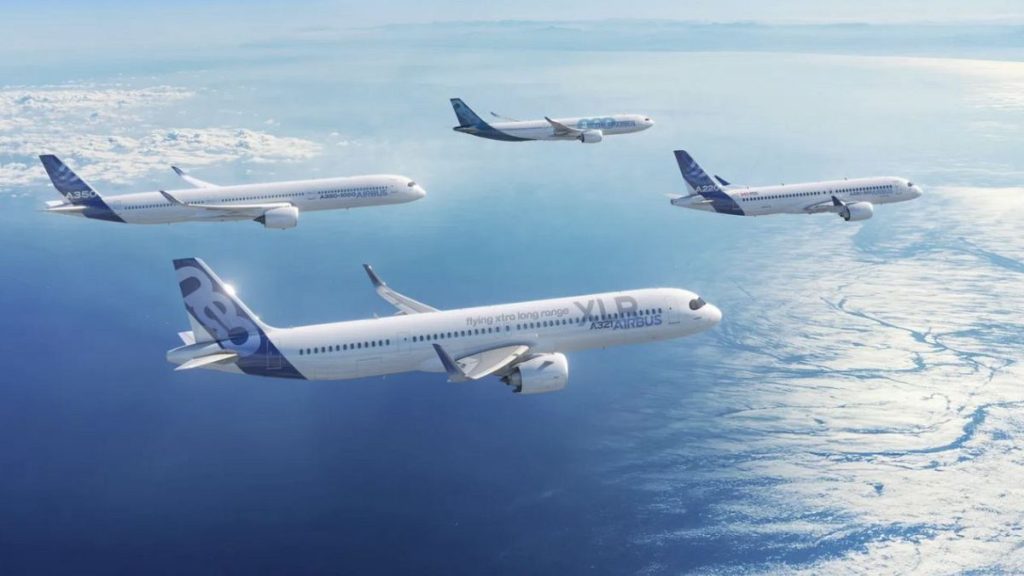Airbus Maintains Industry Lead Despite Supply Chain Challenges
Airbus, the European aerospace giant, solidified its position as a global leader in aircraft manufacturing in 2024, despite navigating a complex landscape of supply chain disruptions and lingering economic uncertainties. Delivering 766 aircraft, the company narrowly missed its adjusted target of 770, a testament to the persistent challenges facing the industry. While short of the pre-pandemic benchmark of 863 deliveries in 2019, the 2024 result signifies a notable improvement over the 735 deliveries in 2023, showcasing the company’s resilience and adaptability in a volatile environment. The year-end surge, with 123 aircraft handed over in December alone, underscored Airbus’s commitment to meeting its obligations and maximizing output despite the prevailing headwinds. This achievement is particularly noteworthy given the industry-wide struggles with supply chain bottlenecks and labor shortages, factors that continue to pose significant challenges to production ramp-up efforts.
The company’s performance reflected a broader industry trend grappling with the aftermath of the pandemic and the ripple effects of geopolitical instability. The initial delivery target of 800 aircraft was revised downwards mid-year, acknowledging the persistent realities of supply constraints. Furthermore, Airbus adjusted its production timeline for the A320 family, pushing back the target of 75 aircraft per month to 2027, a decision aimed at ensuring sustainable growth and aligning production capacity with the availability of critical components. This pragmatic approach reflects a recognition that while demand remains robust, the industry’s ability to fulfill orders is still hampered by external factors. Airbus leadership emphasized the "massive team effort" required to achieve the 2024 delivery figures, highlighting the collective commitment within the organization to overcome these hurdles.
On the demand side, Airbus secured 826 net orders in 2024, bringing the total backlog to a substantial 8,658 aircraft. This strong order book underscores the continued confidence in Airbus’s product portfolio and its long-term prospects. However, the company refrained from providing specific delivery projections for 2025, acknowledging the ongoing uncertainties surrounding the supply chain. The availability of engines, interiors, and aerostructural parts remains a critical bottleneck, impacting the company’s ability to translate its robust order book into tangible deliveries. The specter of potential trade disputes, particularly under a new US administration, adds another layer of complexity to the outlook, underscoring the vulnerability of globalized supply chains to geopolitical shifts.
In contrast to Airbus’s relative stability, its main competitor, Boeing, continued to grapple with its own set of challenges. Beset by safety concerns and labor disputes, Boeing’s performance in 2024 is expected to further solidify Airbus’s dominance in the commercial aircraft market. Airbus has held the lead in global deliveries since 2019, a position cemented by Boeing’s struggles with the 737 MAX crisis and subsequent production disruptions. While Boeing is expected to release its annual data shortly, the prevailing sentiment suggests that Airbus is unlikely to relinquish its leading position in the near term. The contrast in fortunes between the two aerospace giants highlights the importance of operational efficiency and supply chain management in navigating the complexities of the current global environment.
The resurgence of demand for air travel, coupled with the increasing preference for fuel-efficient aircraft, positions Airbus favorably for continued growth. However, the company’s ability to capitalize on this demand hinges on its success in addressing the persistent supply chain constraints. The postponement of the A320 production target reflects a cautious approach, prioritizing stability over ambitious expansion in the face of ongoing component shortages. While the long-term outlook remains positive, the immediate future is likely to be characterized by a continued focus on managing supply chain risks and optimizing production processes. Airbus’s success in navigating these challenges will determine its ability to maintain its leadership position and fulfill the burgeoning demand for its aircraft.
Looking ahead, Airbus faces the dual challenge of managing its extensive backlog and navigating the uncertainties of the global economic and political landscape. The potential for trade disputes, escalating geopolitical tensions, and the ongoing volatility in energy prices all pose significant risks to the company’s operations. Furthermore, the industry-wide struggle with supply chain disruptions underscores the need for greater diversification and resilience in sourcing critical components. Airbus’s ability to adapt to these evolving circumstances and maintain its focus on innovation and operational excellence will be crucial for sustaining its long-term success. The company’s pragmatic approach, evident in its adjusted production targets and its emphasis on supply chain management, suggests a recognition of these challenges and a commitment to navigating them effectively.














